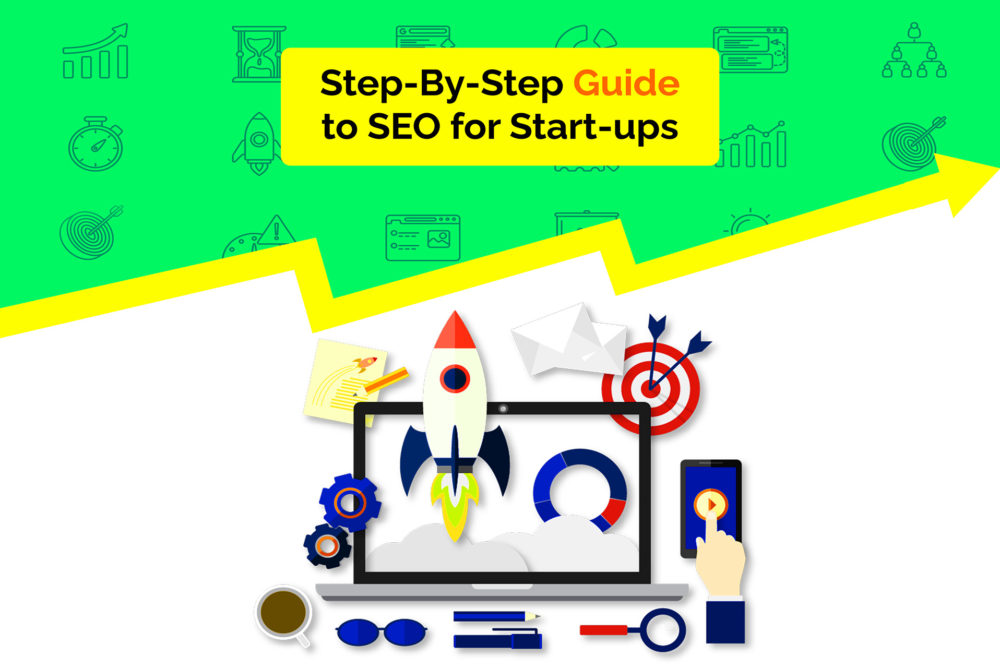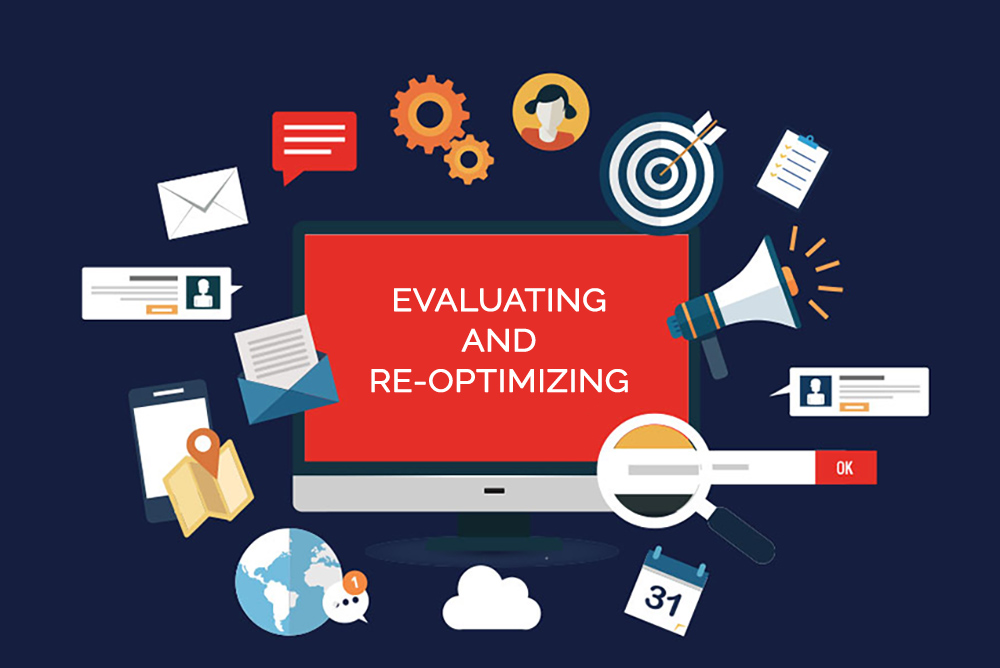Working on your very own start-up company can be an exciting yet challenging experience. Hence, consider several factors and things when launching your startup. These include designing and creating your line of products and formulating a powerful marketing strategy for generating optimum sales.
However, the sad truth is that many start-ups do not understand how valuable SEO can be for the growth and eventual success of the company.
Startups should include SEO as a significant part of their firm’s early marketing strategy. One of the reasons that startups fail to recognize the goodness of SEO is that SEO may be difficult to implement and may take some effort to get right. Another reason startup may not use SEO is they believe that SEO is not a good strategy for 2023.
Most startups need to deal with heavy competition after they launch their firms, and SEO startup services can be a great tool to get ahead in the industry. It is no doubt that SEO is a long-term game that should be handled by organic SEO consultants.
However, SEO can serve as a powerful building block for the inbound marketing strategy of any startup business. So, look at the advantages of working with SEO solutions for startups.
Step By Step Guide for Implementing SEO Strategies for Startups
Step 1: Clearly Defining Your Objectives
One of the first things you need to do while implementing start-up SEO is to have clearly defined goals and objectives for your business venture. As discussed above, you should not simply focus on SERP ranking while working on the SEO campaign of your startup venture. In most cases, it only works as a misleading metric.
You should have a clear and precise SEO objective so that you can adjust your priorities while implementing SEO campaigns.
Remember that SEO implementation and obtaining desired results is a long-term game.
You must have a clear idea about your SEO objectives from the beginning since this can help you save time and utilize your resources to maximize your ROI.
The basic concept of working on SEO campaigns is that your SEO objectives must align with the marketing goals that you have in mind. They should also be in line with the objectives of your startup business. Even though the overall objectives can vary depending on numerous factors, the following are some common SEO goals most companies tend to have.
- Boosting organic traffic: As more people visit your website, it would provide greater opportunities to have leads and convert them into prospective customers.
- Brand awareness: Through SEO, you can get getting more people to know about your brand, and you can then attract them to your website’s content
- Lead generation for the startups: The content you use in your website should be able to drive more people to provide you with their contact information and email address. It is a crucial part of lead generation. You should also include lead generation in your customer acquisition strategy for your startup venture.
- Sales: SEO can be a great tool to drive direct sales on your website if you own an eCommerce business. Having this objective can help you drive relevant traffic to your site to optimize transactional sales.
- Reputation management: Through online reputation management, your brand can have a positive market reputation so that negative content does not affect your business flow.
- Customer service: You can use your content to target people looking for some specific help/solution, as this can bring value to your firm.
You must clearly define objectives for your enterprise while deciding on the SEO strategy. It will enable you to chalk out clear objectives that cater to specific, measurable goals. You can then integrate such objectives in the following steps.
Step 2: Keyword Research
One of the most important aspects of SEO for startups is trying to find the right target keywords for your enterprise. You can do this in several different ways. For instance, you can perform some competitive analysis. Try to explore the keywords used by your main competitors. Additionally, you can study your target audience’s behavior and choose the keywords accordingly.
By performing intensive keyword research using all the available tools, you can have the most relevant keywords that people will be searching for when they intend to buy the products and services you offer.
There are mainly three principles that you should keep in mind while doing keyword research for your startup firm:
- The keywords you use for your optimization needs must be relevant to the needs of your target audience. You can achieve this by calculating the monthly search results for specific keywords.
- The target keywords you choose must be suitable for the brand, service, or product that you have in mind. Certain keywords may be popular with your target audience but they may not be relevant to your startup business.
- Considering the timeline that you have and the budget available to you, you should choose keywords that have real competition. Depending on your available budget and timeline, the competition for this target keyword must be realistic. The most popular keywords have got the maximum competition. Therefore, it may not be strategically and financially feasible for you to focus on overtly popular keywords.
Step 3: Content Planning
The next step you need to take is to plan the content of your website based on the target keywords. At one point in time, most people in the SEO industry thought about content as a means through which they can stuff keywords inside the blog or article. However, things have changed now, and that is no longer relevant. To achieve success through content planning, you need to make your content relevant to the needs of your audience so that they can get value from it.
Content marketing is an essential aspect of SEO, and it involves consistent publication in terms of quality and quantity of content.
So, if you can publish superior quality content regularly, Google will perceive your website as reliable, trustworthy, and credible so that your content is ranked positively on the SERPs.
You need to understand that even though the content is being developed for SEO purposes, you should not simply try to ‘please and satisfy’ the search engine by simply including a lot of keywords for the content. Instead, your primary goal should be to bring the utmost value to your target audience.
Even though startup SEO content marketing is a broad field and cannot be discussed in brief notes, here are some things that you should remember about it:
- One of the primary goals you have for SEO content planning is keyword inclusion, and there are a few things that you need to consider about it.
- You should always include your keywords in the content naturally. The content should be developed naturally and comprehensively so your audience can learn things they need to know.
- You should also pay attention to any keyword’s potential search intent and create content that can satisfy the search intent.
- Perform a quick Google search for the target keywords you are looking to work on, then check all the top-ranking pages. Try to come up with better quality content than the result pages, or try and cover the topic you are working on from another angle that has not been covered so that you can create something unique.
- Another thing that you should do is optimize the structure of your content for the search engine algorithms as well as for the human readers. In other words, you should optimize the overall readability for each content. Significantly, you maintain an excellent internal linking structure. You should work with structured data markup tools so that it assists you with indexing. It will help your content to work as a rich and/or featured snippet.
Step 4: Technical Optimization
After you created your content, you need to work on optimization of the technical aspects of your on-site SEO project for the start-up. There are two essential objectives for this step:
- You need to ensure that Google and the other primary search engines can index your site and recognize the various elements of your site properly.
- You must improve the user experience and readability of your content and website. It will help you retain your visitors for longer periods on your site.
Optimizing for the numerous technical factors is an overwhelming task, particularly for beginners. Here are some essential technical SEO factors that you have to check for while optimizing your site:
- XML Sitemap: Your site needs to have a proper and accurate sitemap so that it is possible for Google to index your site. You can find numerous tools for this purpose. Additionally, you should submit your XML sitemap to Google Webmaster Central.
- Meta Description: The meta descriptions do not function as direct ranking signals, but they can enhance your click-through rate (CTR), which can be a good ranking signal. Hence, you should try to come up with meta descriptions for your human readers. Keep them unique and interesting for the best results.
- Title Tags: Include focus keywords in the title tags. Keep the title tags interesting so that users click on them. Always keep every title tag unique.
- Page load speed: Google has said that if the loading speed of your page is more than 3 seconds, then more than half of your site visitors will bounce. Therefore, you should analyze your site speed by working with Google Page Speed Insights. Optimizing load speed for your site can ensure better success for your website.
- Heading and Subheading: Always use headings and subheadings, as this can improve the readability of the content. Search engines also prefer contents that make proper use of headings and subheadings.
- Mobile-friendliness: Google prioritizes sites that are mobile-friendly and mobile-responsive. So, you should make sure that your site is mobile-friendly and mobile-responsive. An ideal way to ensure that is to test your site on different-sized devices.
- Crawl Errors: You can work with Google Search Console to analyze your site and fix any crawl errors that might be there.
- HTTPS: When it comes to SSL certificates, your site has an HTTPS certificate instead of HTTP, as the former ensures better online security. Google might block your site for Chrome users if you do not have HTTPS.
Another thing that you must remember is that unless it is vital, do not use sub-domains in the setup of your startup website. There is a high chance that Google might define your subdomains as additional separate entities that need separate optimizations. You can use subfolders in such cases, provided they suit the purpose of your organization.
Step 5: Link Building
After you have managed the various aspects of on-site optimization work, you need to focus on off-site SEO work. Whereas on-site SEO deals with creating and publishing content with the proper focus keywords and structure, off-site SEO is about promoting your content and getting others to endorse the content through backlinks.
The backlink works as a way to show confidence in your site, and the content it provides so it is viewed by people on the internet.
Anytime a site links one of your web pages, they show that your content is trustworthy. Never the less, remember that the source of the backlinks is of great importance.
So, when you have backlinks from authoritative sites relevant to your industry, they would be worth more than the links from some new blog site that is hardly related to the nature of your business.
It is needless to say that getting high-quality backlinks is not an easy task, but you can try some of the link-building tips discussed below:
- The best way to get good-quality backlinks is to create high-quality content. So, if your site content is relevant, valuable, and promoted, you can eventually get these backlinks you are looking for. You should promote your content with various marketing channels to obtain backlinks.
- Provide the authoritative sites a reason for linking your content:
- An original, engaging, and attractive story
- Unique data and information that cannot be found anywhere else, such as original research reports, etc.
- Aesthetically-pleasing content, such as awesome images and infographics
- Data roundup posts that showcase useful data and statistics
- Collaborate with other websites belonging to your niche or industry. The greater influence they have, the better.
- Stay active on social media channels, and link to other quality content. Do it more frequently.
- Focus on your market reviews and local citations when you are a traditional brick-and-mortar startup.
Step 6: Evaluating and Re-optimizing
The last step in doing SEO for startups is to check and evaluate the effectiveness of your SEO efforts and make all the necessary adjustments.
As a performing start-up, SEO is a long-term project. It is important that you closely monitor your progress and perform adjustments and re-optimization from time to time. You should evaluate the following specific metrics:
- Ranking: The most important thing to measure is the ranking of your website and whether it is improving, or not. Even if you have not reached the first page of the search engine result pages or are far away from attaining the top spot, you should see whether your website is gradually moving up the SERPs
- Organic traffic: The organic traffic of your site should move up and down along with your rise and fall in ranking. However, if you see that your ranking has improved but your organic traffic has gone down, you should look through the other metrics to detect the possible issues
- Conversion rate: Conversion rates are important for revenue generation, but the things the term ‘conversion’ here covers would vary based on the nature of your site. So it can be form submissions, email signups, or transactions.
- Link profile: Try and look for referring domains and new backlinks. You should look for competition link profiles. It can help you explore link-building opportunities and any possible gaps within your strategy.
- Local metrics: While implementing local SEO methods, check through metrics like the numbers of the local citations, Google Maps ranking, and session location, to name a few.
You should adjust your strategy according to the evaluation. Additionally, keep yourself up-to-date with the latest SEO trends and practices on startup SEO, especially algorithm updates. Never hesitate to update and revamp your content strategy if and when necessary, especially when you can include additional up-to-date information. Google loves sites prioritizing fresh content posting and ranks them higher in its SERPs.
Benefits of SEO services for the startup firms
SEO helps in promoting a business through valuable content
A website functions as a modern equivalent of a traditional storefront, which makes it a vital promotional tool for any business. Content is significant for any online business to work. Without powerful content, it won’t be possible for you to bring great value to your target audience, even if you have a well-designed website.
Therefore, you should focus on having content that is comprehensive, informative, helpful, and engaging.
A common misconception associated with SEO for startup firms is that the content is being optimized for the search engines, whereas it is equally important to optimize the content for human readers.
Hence practicing SEO can be a great way to optimize the content of the website, which can be an excellent marketing asset.
SEO is Cost-Effective
Unlike other forms of online marketing or digital marketing techniques deemed suitable for startups, like PPC advertising, influencer marketing, and social media marketing, startup SEO is a much more affordable option, particularly when you consider it in the long run.
While it is true that SEO may not produce the same kind of short-term impacts as paid advertising and social media, it can be a good tool for laying the long-term foundation for the success of your startup firm. Controlling the spending of resources is one of the top priorities of any startup. By investing in a start-up SEO campaign, you can ensure steady growth for your business.
Search Engine Has a Greater Market Share Than Before
More people these days use the internet and search engine to look for product information and reviews before deciding things to put their money in. Google now processes nearly 3.5 billion online searches daily, and the number will increase in near future.
Hence, when you are skipping SEO services for your startup, it naturally means that you are giving up on potential marketing opportunities.
As time goes by, more and more people will spend time on their mobiles. It means that search engines will be a powerful tool for their lives, and unless you have organic SEO to rely on, it will be difficult for your potential customers to locate your business.
The three reasons mentioned above are not the only factors, there are numerous other benefits of using SEO marketing tools for your start-up venture. SEO is not just some extravagant luxury marketing strategy but a significant need for any startup business.
The Best Practices for Using SEO for Startups
The first thing people think of when they hear the word ‘SEO’ is a means through which it is possible to cheat Google and other search engines to achieve better online ranking.
It may have been true for SEO practices in the early 2000s when many companies could get away with black hat SEO techniques, but this is no longer the case nowadays.
A white-label SEO agency is crucial for the success of any SEO campaign. SEO startups are mired by different misconceptions. Hence, it is necessary to address some of these before we begin.
SEO is not Some Shortcut to Cheat Search Engines and Get Rich Quickly
Even though it is true that some black hat SEO methods may offer you short-term results, however, organic SEO requires a lot of research, effort, and hard work. Black hat SEO is not worth much for the effort some companies put in, as they can get you penalized by Google. In some cases, your site may even be banned by Google.
Re-frame your mindset into understanding that SEO for a startup business is a long-term SEO strategy for building organic results. You may need to spend at least six months to one year before you can observe any results. However, you can be sure of the fact that the results are going to pay off.
SEO is Not Just About Ranking
Startup SEO practitioners tend to be highly fixated on achieving high rankings in search engines. Nevertheless, even if you can get the best rankings in the search engines, it won’t be of much use to you if do not get good returns on your investments as relevant traffic and high conversion rates.
Now you may ask, isn’t getting a higher ranking the best way to obtain traffic? Yeah, but not always. Numerous high-ranking sites have high bounce rates. It means that they frequently lose out on valuable and potential leads. You can also find sites having substantial traffic, but they do not have people buying the products and services they have to offer.
Therefore, when you decide on your startup company’s SEO goals, do not just think about ranking. Instead, focus on the essential goals namely traffic, lead generation conversion, and earning revenue.
Search Engine Optimization is NOT dead
Many online articles rave about how SEO is dead and how certain types of Google algorithm updates eventually make SEO obsolete.
The reality is different from that, as SEO is now stronger than ever before. So, forget the fact that it is even close to death. Nevertheless, one thing that is true about SEO is that it is always going through several changes. It means a strategy that may work in 2013 may not produce the same results in 2023. The good thing is that when following the basic outline of the SEO strategy described here, you would be able to implement the changes you want to have for your website any time some changes occur in the algorithm.
So, when you stick to the best practices associated with SEO, you can stay strong in your line of business.
Final Words: Do’s and Don’ts
Even though SEO implementation for startups is no easy task, you can still follow the steps described above to improve your site’s ranking in the SERPs.
To conclude this guide, we will share some do’s and don’ts that will be helpful for you as you start the implementation of SEO for your startup firm.
Do’s
- Track your progress regularly and make changes when necessary.
- Consult with an organic SEO consultant who can help you to create a powerful SEO strategy. You may also outsource your SEO needs to an agency.
- Since SEO is going through a lot of changes, make sure that you keep yourself updated with the latest practices, methods, and knowledge.
Don’ts
- Never use keyword-stuffed content or duplicate/plagiarized content.
- Never buy your links from any source, ever.
- Always refrain from building links using spammy methods: like blog comments, forum comments, and posting on various low-quality sites.











